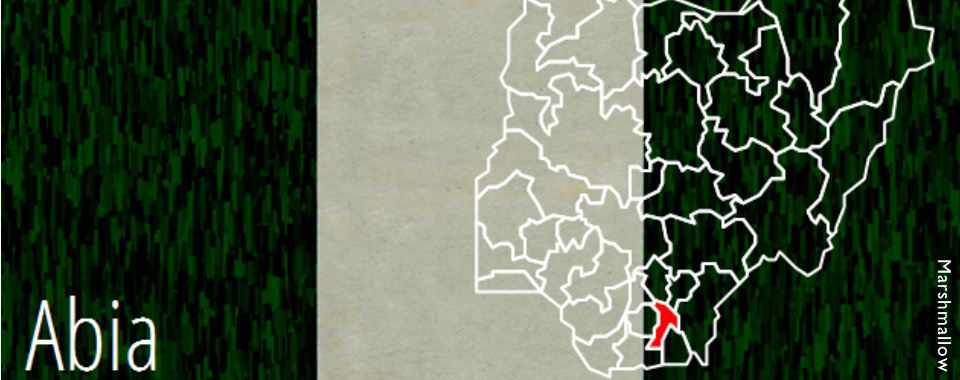BY NATE HAKEN*
Abia State has an estimated population of 2.4 million, predominantly of Igbo origin. Comparatively, it has not experienced the levels of violence and insecurity that other states in the Niger Delta have over the time period analyzed (although there was a sharp uptick in violence in 2010 associated with a surge in kidnappings). Abia produces about 27% of Nigeria’s crude oil and a significant amount of its natural gas. It is also rich in yam, maize, rice, potatoes, and cashews.
Theodore Oriji (People’s Democratic Party) was re-elected as governor of Abia state in 2011. Since the dissolution of the local government administrations in January 2010, there have been no Local Government Area (LGA) level elections, as of July 2014. In 2010, there was a spike in abductions and criminality in Abia, with a corresponding increase in vigilante/mob justice. A notable incident was in September 2010 when 18 school children on a bus were kidnapped. There was a significant decline in such incidences in 2011, although several cases of alleged public security abuses were reported. During 2012 and 2013, issues reported included kidnapping, political intimidation, student protests and cult violence. In the first half of 2014, Aba North/South LGA worsened while Umuahia North/South LGA improved by a significant margin. Additionally in the first half of 2014, shootings, killings, and abductions continued to be reported.
This Conflict Bulletin provides a brief snapshot of the trends and patterns of conflict risk factors at the State and LGA levels, drawing on the data available on the P4P Digital Platform for Multi-Stakeholder Engagement (www.p4p-nigerdelta.org). The summaries draw on data collected by ACLED, FFP’s UNLocK, the Council on Foreign Relations’ NST, WANEP Nigeria, CSS/ETH Zurich, and Nigeria Watch integrated on the P4P platform.
* Marcela Aguirre contributed to this report.
